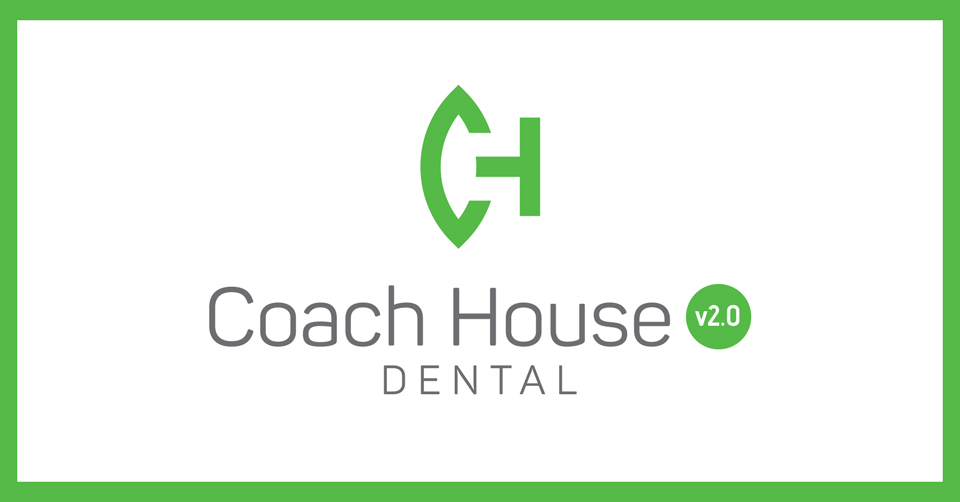COVID-19 forcibly separated us as a society; people from their families, retailers from their customers, and dentists from their patients. However, on the positive side it has also been a unifying experience in some ways.
When you look at dentistry, while there are differences in terms of the various business models, many were facing the same challenges and coming together via online forums to share advice and best practice.
I spoke to Martha Schofield, practice manager, and Ishaaq Mirza, principal dentist, at Coach House Dental in Matlock about how they met the challenges thrown up by COVID-19.
Taking time to upskill
Both Martha and Ishaaq used this time to update their skills and complete some CPD.
Martha said, ‘I was furloughed after we closed the practice but I completed some online training via the Medenta e-learning portal and also with Invisalign®, around communicating with patients.
‘Both Ishaaq and I were meant to travel to London for a two-day course as part of our level 7 Practice Management qualification, but instead we had to do it via Zoom. It was good to keep busy as I did find it difficult at first to adjust to not being in the practice and I wanted to keep my mind active and be ready for returning to practice.
‘We work very collaboratively and would usually be discussing things and bouncing ideas off each other, so it was strange not to have that interaction.’
As the practice owner, Ishaaq was not furloughed and was working from home triaging patients and giving advice over the phone. However, he also managed to complete 40 hours or CPD mainly in Invisalign®, facial aesthetics and protecting children and adults.
A change of tack for marketing
Before closure, Invisalign® had been a big focus for the practice and they were busily pushing forward a marketing campaign around that. However, much like with other elements of running the practice, the arrival of COVID-19 demanded a rethink around this.
Ishaaq said, ‘The pandemic may well have impacted patients’ financial situation so we didn’t want to be insensitive to that.
‘It’s really important at times like this to be visible to your patients and let them know you’re here and to show your human side. Even though I’m usually quite shy of social media and before this we had only posted sporadically on Instagram, we started posting every day and doing a weekly vlog.
‘I’ve been taking part in the Chris Barrow Regeneration Programme, which has been great for weekly CPD for the team and advice from more experienced owners, and I follow his advice about posts being 80% patient information, 15% fun stuff and 5% boring dental stuff.
‘I’ve shared with patients that I have my own financial worries, much like them, and they have appreciated that I’m just someone trying to run a business in a difficult situation, worried about the cost of the necessary PPE.
‘They’ve got to know me in a way that they can’t necessarily do during, sometimes relatively short, appointments; they know I’ve been home-schooling my children, that I’ve started growing vegetables, that I usually commute to the practice from Birmingham, etc.’
Ishaaq says the support he has received from patients has been ‘outstanding’ and that while he at first expected his private patients who are on a plan to cancel, none of them did.
The new patient journey
Like many other dentists, Ishaaq has been using SmileMate to conduct virtual consultations and believes they will remain part of a journey even after reopening.
When it comes to the rest of the journey, it has been entirely remapped and now includes steps such as:
- Completing medical questionnaires digitally before attending appointments
- Telling patients to come with minimum belongings (no coat/bag)
- Patients waiting in the car to be called in
- Patients using hand sanitiser and having their temperature taken before appointments
- Paying via card, or if it has to be cash then it must be the correct amount.
And the practice is also operating a new system for booking in appointments.
Ishaaq explained, ‘We’re going to have to work longer hours and Saturdays because, at the moment, there is no clear guidance around whether we will still need to complete 100% of our NHS contract and the potential for clawback. And we have a backlog of patients but we won’t be able to see as many as we usually can.
‘Our days will be split up so that for two to three days we are doing non-AGP services and the other days will be allocated to AGP work.’
When it came to stocking up on PPE, the practice’s patients were very clued up and so Ishaaq invested in air purifiers as many expressed that this was what they were expecting. He also found a lack of clear guidance around exactly what was needed and so took a proactive approach by following what the Urgent Dental Centres were using.
The future is a learning curve
Looking to the future, both Martha and Ishaaq are positive and philosophical.
Martha said, ‘A lot of people are using this as a time to save money, so I’m hoping that patients can still come back and go ahead with treatment. I think a lot of people have taken the positives from this time and hopefully this will continue when we get back to normal.’
Ishaaq added, ‘I think about this as being Coach House Version 2.0. We’re going to be learning as we go. We’re bound to make mistakes and get things wrong but the important thing is we’ll see what works well and what doesn’t, we’ll learn and we’ll get it down to a fine art.’


